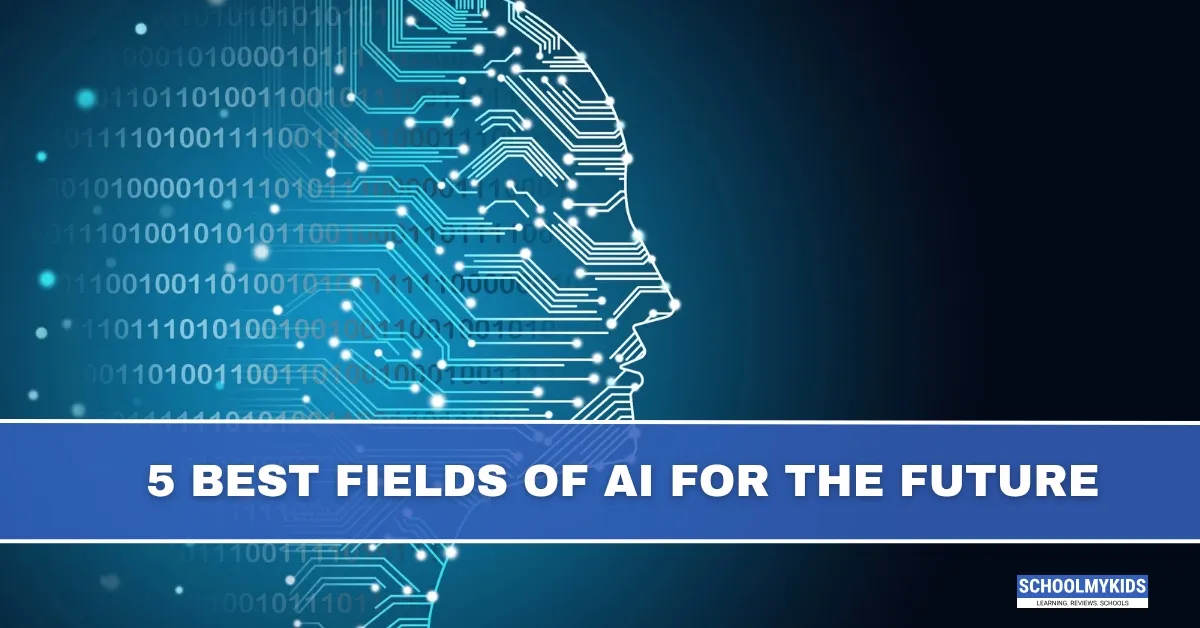Artificial Intelligence (AI) is no longer just a futuristic concept—it’s already shaping industries and redefining careers. For students and college graduates, AI offers opportunities that are both exciting and financially rewarding. Here are five of the most promising fields of AI that are expected to grow rapidly in the coming years, along with potential career paths.
1. Machine Learning and Deep Learning
What It Is: Machine Learning (ML) enables computers to learn from data without explicit programming. Deep Learning (DL), a subset of ML, uses neural networks to mimic the human brain’s decision-making process.
Applications:
- Self-driving cars (Tesla, Waymo)
- Personalized recommendations (Netflix, Amazon)
- Voice assistants (Siri, Alexa)
Career Options:
- Machine Learning Engineer – builds and trains ML models.
- Data Scientist – analyzes data patterns to solve business problems.
- AI Research Scientist – works on new algorithms and model architectures.
Skill Path for Students: Learn Python, TensorFlow, PyTorch, statistics, and linear algebra. Free courses (like Google’s ML Crash Course) and Kaggle competitions are great starting points.
2. Natural Language Processing (NLP)
What It Is: NLP allows machines to understand and respond to human language. This is the technology behind chatbots, translators, and voice recognition systems.
Applications:
- Chatbots & Virtual Assistants (ChatGPT, Bard)
- Language translation (Google Translate)
- Text analysis for sentiment and intent detection
Career Options:
- NLP Engineer – develops speech-to-text and conversational AI.
- Computational Linguist – combines linguistics with AI to improve language models.
- Product Manager (AI/NLP tools) – manages AI-driven applications.
Skill Path for Students: Focus on Python, NLTK, spaCy, and Hugging Face Transformers. Linguistics or English majors with coding skills also have an advantage.
3. Computer Vision
What It Is: Computer Vision allows machines to see and interpret visual data from the world. It is key to facial recognition, autonomous vehicles, and augmented reality.
Applications:
- Medical imaging (cancer detection)
- Self-driving car navigation
- AR/VR experiences in gaming and education
Career Options:
- Computer Vision Engineer – works on image processing and object detection.
- Robotics Engineer – integrates vision systems into robots.
- AR/VR Developer – builds immersive experiences.
Skill Path for Students: Learn OpenCV, TensorFlow, PyTorch, and image processing techniques. Hackathons and research internships in robotics or medical AI are valuable.
4. AI in Healthcare and Biotechnology
What It Is: AI in healthcare uses data-driven insights to improve patient care, speed up drug discovery, and predict health risks.
Applications:
- Early disease detection using AI diagnostics
- Personalized treatment recommendations
- AI-driven drug development
Career Options:
- Healthcare Data Analyst – processes patient and clinical trial data.
- Bioinformatics Scientist – applies AI to genetic and medical data.
- AI Healthcare Product Manager – develops AI-enabled medical solutions.
Skill Path for Students: Knowledge of biology/medicine combined with programming (Python, R) is essential. Consider certifications like AI in Healthcare by Stanford.
5. AI for Cybersecurity
What It Is: Cybersecurity powered by AI identifies unusual patterns, predicts attacks, and protects critical data systems.
Applications:
- Fraud detection in banking
- Threat detection in enterprise networks
- Automated response to cyberattacks
Career Options:
- Cybersecurity Analyst (AI Focus) – detects and mitigates threats.
- AI Security Engineer – builds ML models to predict attacks.
- Ethical Hacker – uses AI tools to find vulnerabilities.
Skill Path for Students: Study cybersecurity fundamentals, network security, Python, and ML for anomaly detection. Certifications like CEH (Certified Ethical Hacker) and CompTIA Security+ add value.
Final Note for Students
The AI job market is projected to grow by 35% annually (World Economic Forum), meaning there’s a huge opportunity for students who start early. Whether you’re from computer science, electronics, mathematics, or even biology, AI has a space for you.








Be the first one to comment on this story.